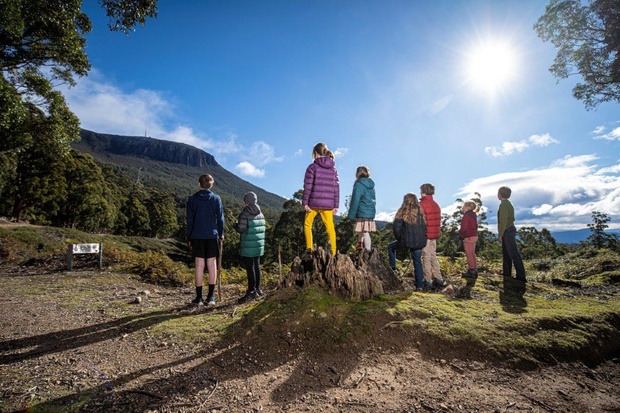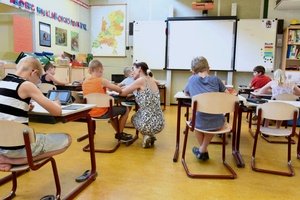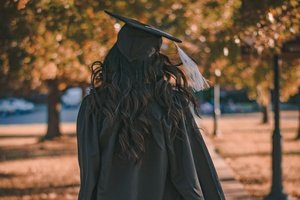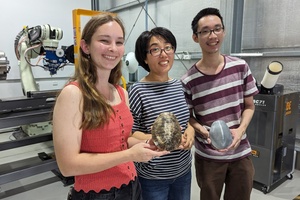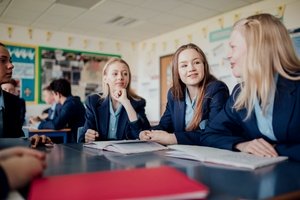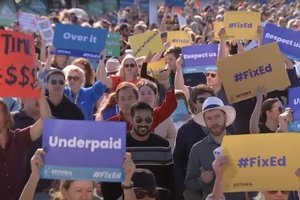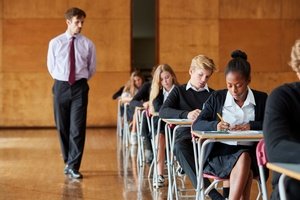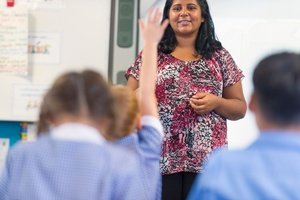Somewhat encouragingly, Version 9.0 mentions climate change 32 times – which might sound a little under-done, however it's a big improvement on the previous incarnation, which mentioned climate change just four (yes, four!) times.
But while climate change is referenced across diverse subject areas – from civics and citizenship, geography, history, science, mathematics, to technologies, and the arts – and students now have more opportunities to learn about it, and teachers have more direction on where and how to teach it, it’s also important that we hear from kids on what they want to learn more about.
On our current trajectory, climate change will drastically affect our current crop of students’ health, wealth and job futures. Indeed, with continued global warming, extreme events such as heat waves, bushfires and flooding will continue to rise in frequency, intensity, duration, and spatial extent over the coming decades.
University of Tasmania (UTAS) human geographer Dr Chloe Lucas and a team of researchers have just released a report on a program that across 2021 and 2022 received 464 questions from 1500 children aged 7 to 18 – and what they found is that climate action was by far kids’ greatest concern.
They want their education in this area to be more holistic and to be more empowering. They understand and accept the science of how we’ve arrived at this point – what they want to know is how they can optimise having a positive impact on the planet moving forward.
The program, called Curious Climate Schools, was established in 2021 and has involved a team of climate scientists, conservation biologists, fire scientists, chemists, lawyers, engineers, psychologists, social scientists, oceanographers, Indigenous knowledge specialists and health experts answering the climate change-related questions.
“It was interesting how complex a lot of the questions were, so many of the questions had lots of parts to them and were quite difficult to tease apart, but overall there was an overwhelming focus on climate action on what we can do about climate change,” Lucas tells EducationHQ.
“That was really the main thing that we found, not only what children can do themselves, but what governments ought to be doing, what other people ought to be doing, there was a lot of questions around responsibility.”
Lucas says most of the children she has encountered during the program have a basic understanding that we’re burning fossil fuels, and that’s leading to greenhouse gases, which is making the planet warm.
They’re much more worried about the future.
“We get a lot of questions asking for predictions for what’s going to happen.
“It’s very hard for us to give those predictions because the answer is always ‘it depends, it’s up to us’,” Lucas says.
“A lot of questions were about how climate change is impacting the environment and will impact the environment and their lives and other people in other countries, so there’s almost as many questions about impacts – but really, their strong focus was on what we can do to resolve it.”
It’s clear many children feel sad, anxious, angry, powerless, confused and frightened about what the future holds.
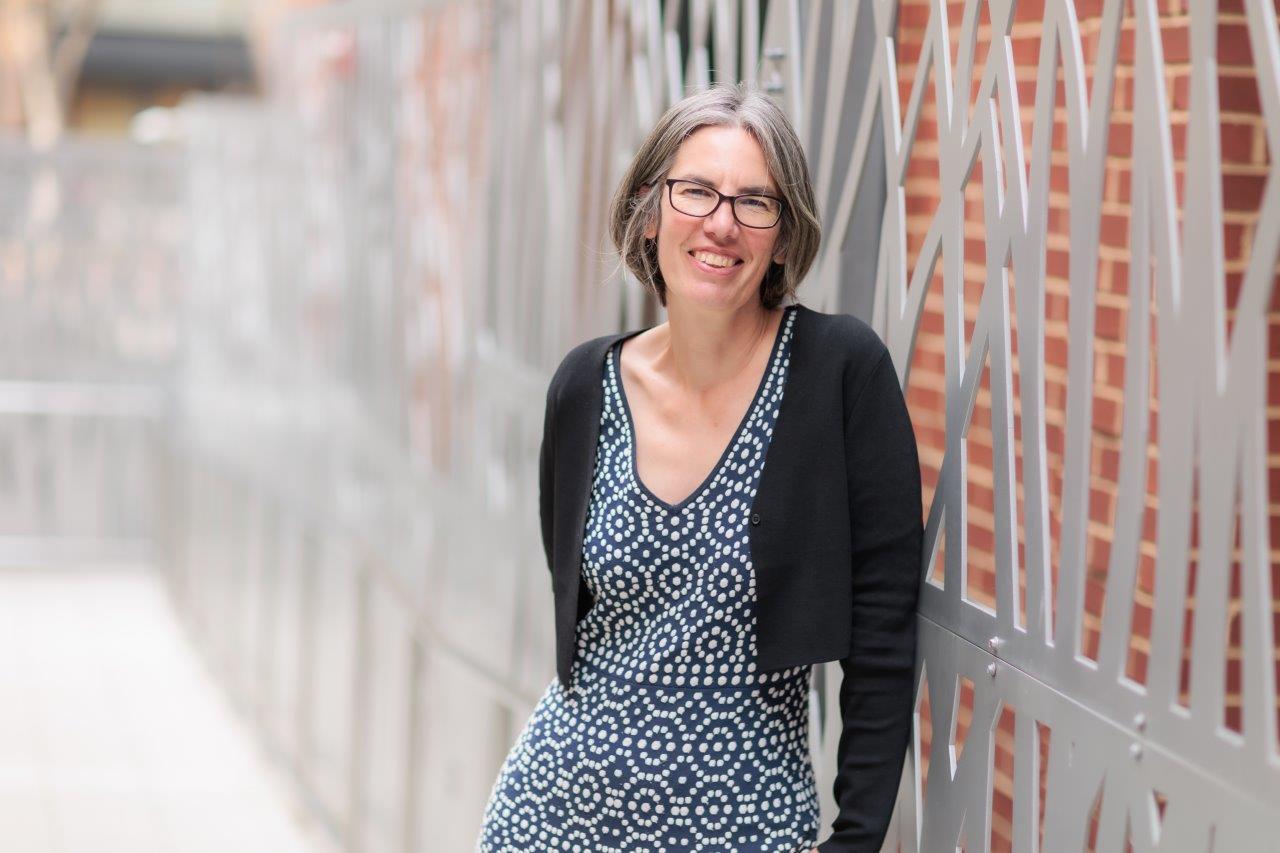
Researcher Dr Chloe Lucas says climate change should be integrated into all subjects in the curriculum and that children must be given opportunities to get involved in shaping the future. She believes governments and industry should commit to listening to children’s concerns and acting on them.
In September last year, EducationHQ chatted to Kim Beasy, a UTAS research colleague of Lucas’s about their report, titled The burden of bad news: educators’ experiences of navigating climate change education.
Beasy talked then talked about teachers having to do their own knowledge-build on climate change, with little or no resources being provided for them and how important it was that they present classes as positive and hopeful, as opposed to negative, along the lines of ‘impending doom’.
At the time, Beasy said climate change education’s provision nationally was sparse and ad hoc across school contexts, was not mandated, and relies on the efforts of ‘an impassioned few’.
Lucas says it is clear from the data provided in her study that while climate change is primarily represented as a scientific and environmental issue, more focus needs to be applied on the social and political causes and challenges.
“I think the fact that children are mostly asking about the applied nature of climate change, about how climate change will play out in the world and how we can deal with it, suggests that we should be talking more about those things,” she suggests.
“So we should be addressing climate action in this education, and so far, we are not doing that.”
The majority of climate change education has been in science subjects, and Lucas says this research shows that we need to go much broader than that.
“We need to be including it in humanities lessons, in English lessons, in art lessons, there are many ways that we can include climate change in our teaching across the spectrum of subjects,” she explains.
“And, yeah, I think that’s something that I would strongly encourage teachers to think about, because it’s going to be such an important part of all of these children’s lives.”
Lucas is encouraged that gradually, perhaps in response to a more climate-conscious national curriculum, schools and systems in each state and territory are picking up the baton.
“I think that there are some opportunities, and in different states they are looking at how they can increase the resources and help teachers,” she says.
“I know in Tasmania, that they’re looking at this at the moment.
“But we need a whole step change in how we think about climate change education, because it needs to be much more front and centre, because it is something that affects everything.”
And while schools are starting to do their bit, Lucas is clearly frustrated by the lack of progress at a policy level.
“I mean, we still haven’t really got a coherent climate policy from the government to get us to net zero by 2050,” she says.
“So, in that context, I don’t think we’re there at all in most of what we do. I think it’s growing, but it’s growing slowly.
“And we do need everybody to start thinking about it. We need to start training teachers about this as part of their teacher training and that’s not happening yet. We need to be doing PDs on this – I’m working on it (laughs) but yeah, there’s a lot that we need to do.”
Not surprisingly, as ever in any conversation related to climate change, Lucas says time is of the essence.
“One thing I would like to say is that this generation who are currently going through schools are the generation who need to make the change – they have the potential to have the biggest impact on climate change, because they are coming in at a point where they know all about it, we know what can be done, and we need to turn it around in their lifetimes, or else it really will be too late.”

